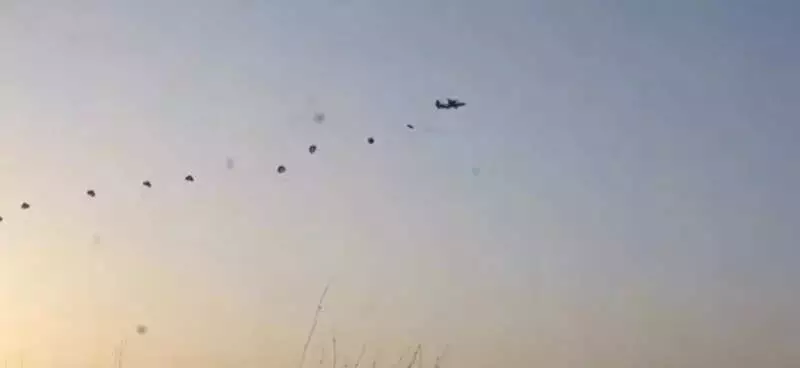
In a significant display of military prowess, troops from the Indian Army's Southern Command and the Indian Air Force joined forces to execute "Maru Jwala," a large-scale airborne exercise on Wednesday. This crucial drill unfolded across the challenging desert landscapes of Ramgarh and Jaisalmer in Rajasthan, areas that sit strategically along the Pakistan border.
Strategic Importance and Terrain Challenges
The exercise holds substantial strategic weight, especially considering the sensitive nature of India's western front. It builds upon lessons identified during previous operations like "Sindoor," which underscored the necessity for swift, integrated, and coordinated responses to dynamic frontier challenges. The desert terrain of Rajasthan, a critical part of the western frontier, presents unique hurdles in mobility, logistics, and communication. "Maru Jwala" was designed specifically to validate the Indian forces' capability to project combat power rapidly and sustain joint operations within this complex environment.
Synergised Execution and Battlefield Simulation
A release from the Southern Command confirmed that the exercise successfully demonstrated the synergised capabilities of the Indian Armed Forces in planning and executing complex airborne operations. A senior Army officer elaborated on the drill's specifics, noting that soldiers were airdropped from C-130J and AN-32 transport aircraft onto a simulated battlefield. They landed with precision at pre-designated zones where armored and mechanised units were already in position.
The drill replicated realistic hostile conditions, focusing on establishing forward airheads and securing vital ground objectives. The troops achieved the highest standards of operational coordination during this maneuver. Another senior officer emphasized that mastering airborne insertion and the rapid build-up of combat power is a decisive factor in any contingency scenario, a skill perfectly showcased in this exercise.
Validating Interoperability and Future Readiness
Beyond demonstrating tactical prowess, "Maru Jwala" served to validate critical logistics chains, communication grids, and interoperability protocols between the Army and the Air Force. A senior officer involved in the operations stated that the exercise reinforced synergy and strengthened the bond between the two services, which is crucial for defining the outcome of any operation on the battlefield.
The drill also integrated indigenous platforms and systems to boost situational awareness, battlefield connectivity, and decision-making speed. This reflects India's growing capability to conduct multi-domain operations using homegrown technologies. Defense analysts view such exercises as essential for refining India's joint warfighting doctrines and ensuring readiness against hybrid threats and potential short-duration conflicts.
Officials concluded that the exercise, conducted in one of the most challenging terrains, demonstrates the Indian Armed Forces' unwavering commitment to operational readiness. It sends a clear message of preparedness to address any threat along the border, highlighting that the synergy between the Army and Air Force remains central to securing India's western frontiers.





